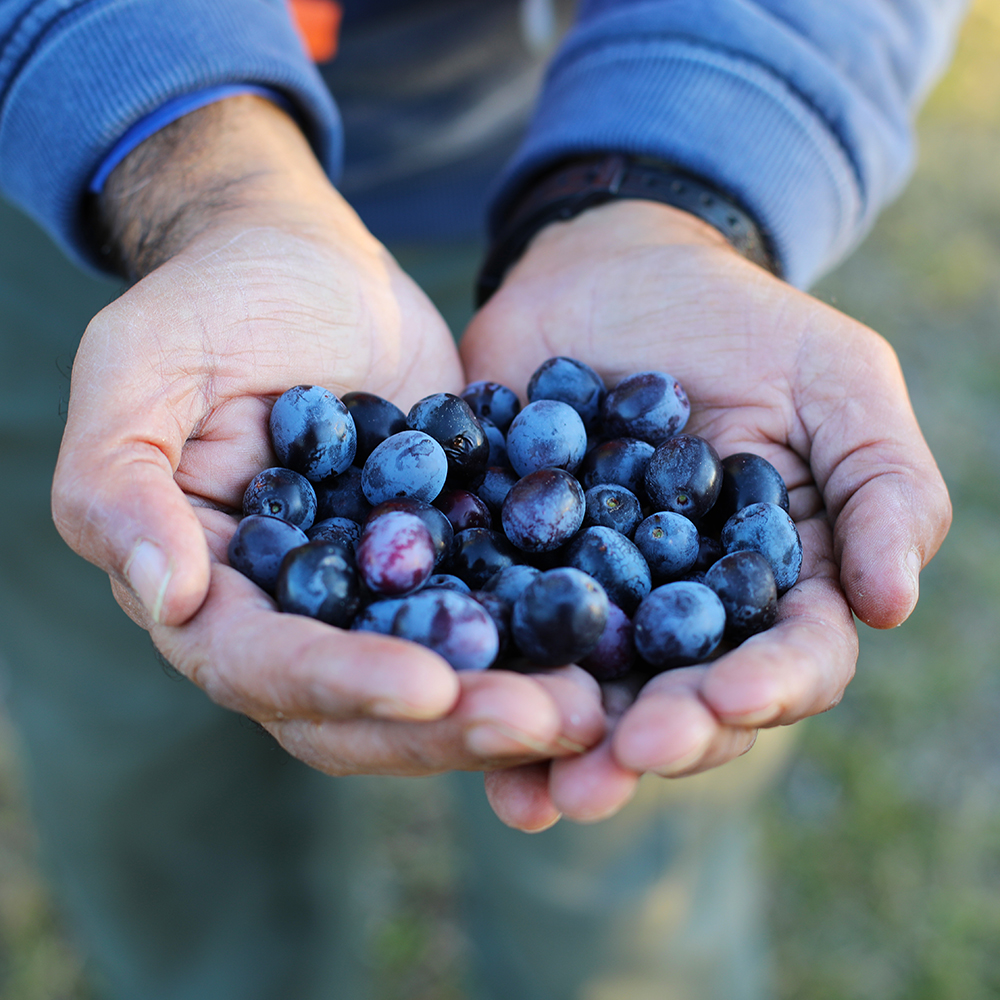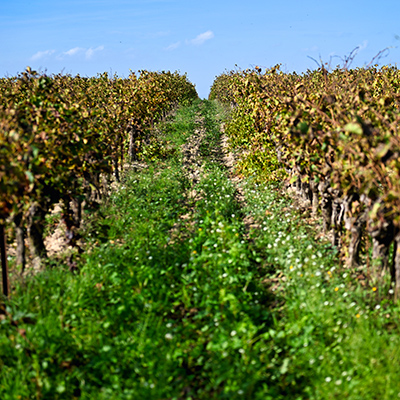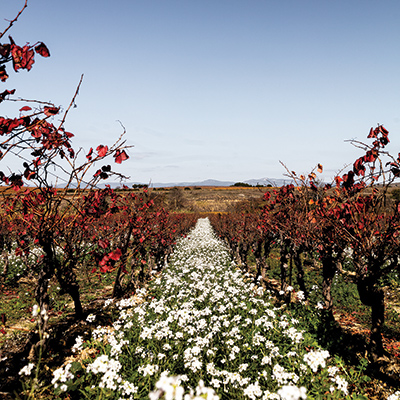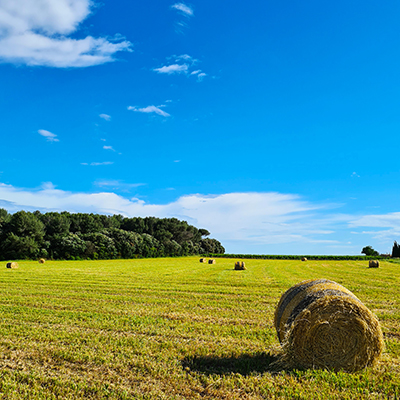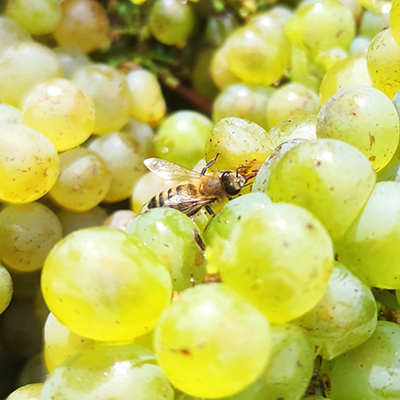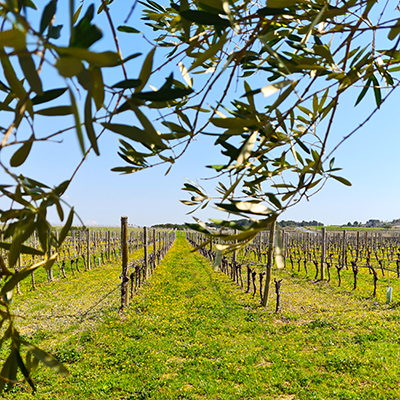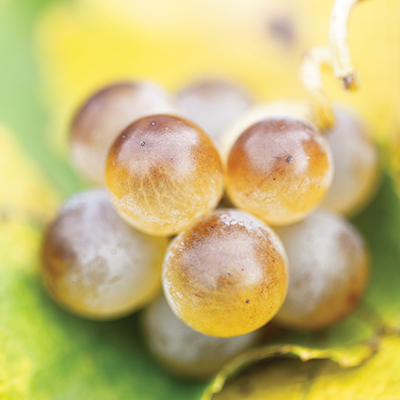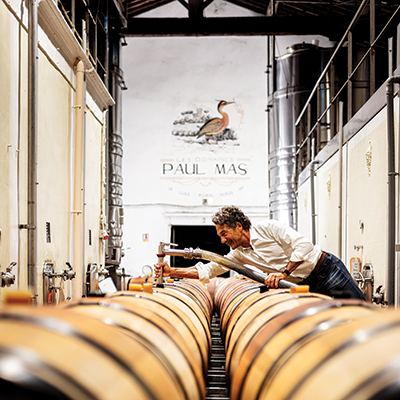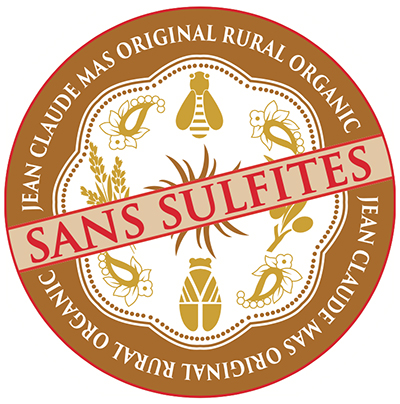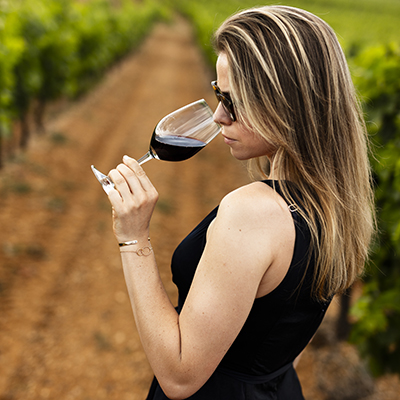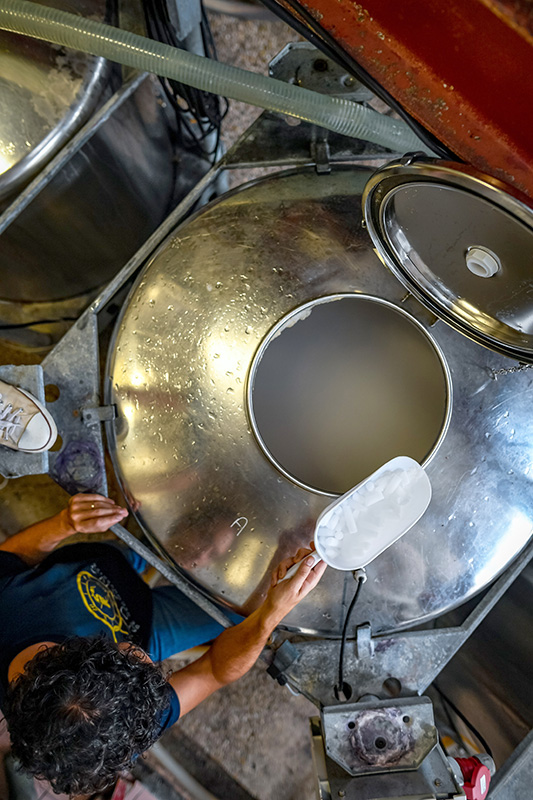Our engagements
Pioneers in the conservation
of biodiversity
40% of our vineyard is certified organic, 100% is certified HVE 3 with biodynamic principles. We are committed to the elimination of all chemicals in favor of biocontrol solutions such as essential oils but especially by working on the soil life and the nursery selection. Our vines reach greater consistency in terms of quality and yield. Grapes are more full-flavoured; the plant finds trace elements that cannot be found in conventional agriculture. At Domaines Paul Mas, we have understood a long time ago that the need to integrate environmental sustainability into our agricultural philosophy and practices.
Our practices are aligned to the four pillars of sustainable viticulture of high quality to bring out real terroirs..
The label High Environmental Value (HEV) requirements is only the beginning.
High environmental value four required keys
Conservation of biodiversity
The validation of this criteria is based on the weighting of the surface areas according to their environmental values. The proportion of vines planted on the global area is measured via a point system: for 1 ha of planted vines, 1 ha of topographic surface is required, equivalent in biodiversity: streams, scrubland, tree alignment, isolated trees, groves, etc … are valued at double their actual area. Our 950 ha of vines are planted on sites representing 1250 ha, which mix olive groves, orchards, groves, streams, etc. These 350 hectares preserved are valued at twice their surface area. We manage to increase local essences which are perfectly acclimatized throughout centuries.
Phytosanitary Strategy
Languedoc is one of the French region which uses the least phytosanitary products. Domaines Paul Mas make the choice of alternative methods such as zero herbicides, pest repellants, tillage and organic preventive control. We believe in natural defense stimulation as the best preventive control.
Domaines Paul Mas use organic fertilizers in all areas. Before fertilization, we analyze the soils. After fertilization, we analyze our shoots, and our hiatus over 3 years to check the effect of fertilizers on each plot. We have created our own fertilizers to respond to our specific needs and increase biological activities in the soil.
Irrigation management
Water, even in small quantities, is essential to the well-being of the vines. We have put in place a rigorous management of our resources from the vine to the cellar. We enhanced our expertise in soil management as the best way to keep the resources for the vines.
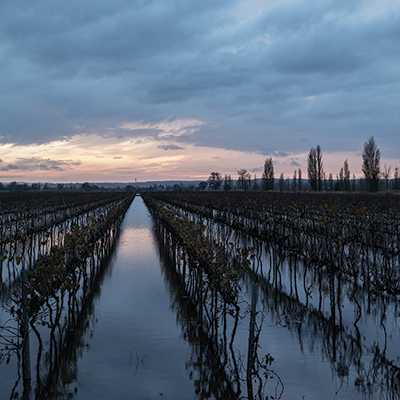
Our actions environment & biodiversity
Project “Birth of a vine”
Before planting a plot, we systematically sow sunflowers, wheat or alfalfa (without any use of irrigation and fertilization) over 5 years, to rest and reinvigorate our soils. The harvest of these seedlings is collected by local farmers or used for our horses.
Loving & protecting bees
We welcome beekeepers at our estates at Lauriga, Les Tannes, Astelia and Martinolles, so that the bees benefit from the privileged setting of our protected sites. We help to pollinate and adjust our treatments to protect them. Most of our estates enjoy natural reserves for the development of wildlife with one goal: to maintain a natural balance between our vineyard and their environment.
Sélected grass cover management
To stimulate the soil’s biodiversity, protect the soil from erosion and increase aeration, in our vineyards and our woods, we proceed to calculated sowing according to each type of soil.
Production Transition
Since 2006, our cellar effluents have been recovered in winter to be used, after filtration, in our olive groves and vineyards on the sites of Malras and more recently Domaine Nicole.
87% of production-related waste (plastics, cardboard, glass, label glassine, wood substrates) is recycled (190 tons / year)
Our water and electricity consumption are monitored on all our sites. We also under contract to receive green electricity through our power supplier EDF. Astelia cellar is now self sufficient thanks to solar energy.
All our buildings favor the great and traditional materials which assure optimal divisions and a better standard of comfort of work.
Resistant Varietals
” What matters is our viticultural philosophy.”
The use of chemicals has been banished from our vines. To us, organic viticulture is a key value, not a selling point. Our vine sare, for the most part, cultivated under an organic management because we believe that a living soil yields better fruit.
We do not apply for organic certification on all our vineyards. Because what matters is our viticultural philosophy.
Jean-Claude Mas has worked on SULFITE FREE wines, for the last decade. It’s important to understand that sulfite-free winemaking is a craft that demands meticulous attention to detail, excellent sanitation, and a deep understanding of the winemaking process. The resulting wines can exhibit unique and vibrant flavors that appeal to those seeking more natural and less chemically treated wine options.
Challenges of sulfite-free wine
Producing wine without any added sulfites can be challenging because it increases the risk of spoilage and oxidation. This is why Jean-Claude Mas and his team of winemakers take extra care during the winemaking process to ensure the wine remains stable without the use of sulfites.
Natural and organic wines
Many sulfite-free wines fall under the categories of natural or organic wines. Natural wines have gained popularity for their minimal intervention winemaking processes, which often result in lower sulfite content.
Taste and variability
Sulfite-free wines can exhibit unique and diverse flavors because they may undergo spontaneous fermentation, allowing for a broader range of microorganisms to influence the wine. Some people appreciate the natural and more diverse flavor profiles of these wines.
Sulfite-free winemaking involves specific practices and techniques aimed at producing wine with little to no added sulfites.
While it’s challenging to eliminate all sulfites, winemakers use various methods to minimize their use and still produce stable, enjoyable wines. Here are some key aspects of sulfite-free winemaking:
Cleanliness and sanitation: Proper hygiene reduces the risk of contamination by unwanted microorganisms and minimizes the need for sulfites as preservatives.
Natural fermentation : rely on native or wild yeast strains for fermentation.
Minimal intervention: this includes avoiding excessive filtration, fining, or other treatments that could destabilize the wine.
Quality grapes: Starting with high-quality, disease-free grapes is crucial in sulfite-free winemaking, as it reduces the risk of microbial issues that might necessitate the use of sulfites.
Vigilant monitoring: sulfite-free winemakers monitor the wine closely throughout the winemaking process, checking for any signs of spoilage, off flavors, or instability.
